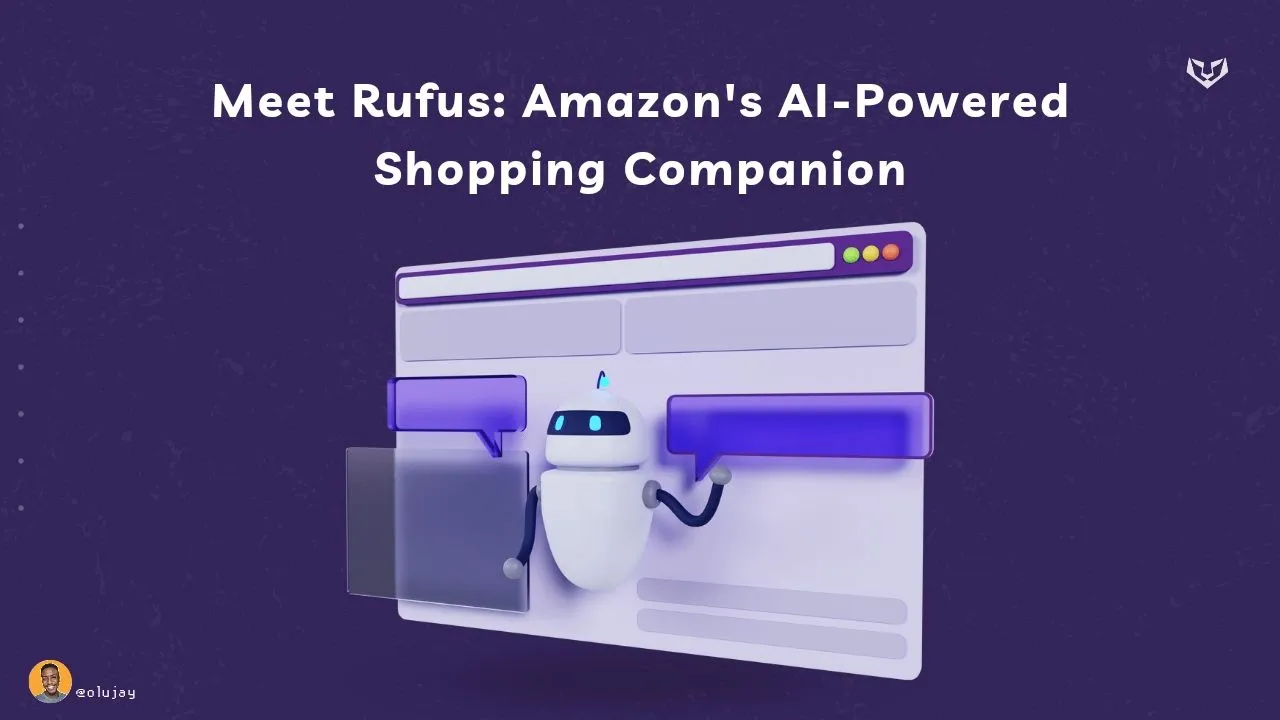
Shopping online isn't something I do much of now, but in the times that I do, what I would like to have is a great shopping experience—like everyone else. And that generally comes down to having my needs met adequately and me feeling like I got my money's worth—a product that I would enjoy for a long time.
Shopping sites know that delivering great shopping experiences to their customers matters a lot to retaining them. And so they are always seeking ways to improve their services and ensure that customers get just what they want without hassle. And since one of the things between customers and the products they desire from online shopping sites is the user interface (UI), competitive platforms will often seek to make theirs what customers would enjoy more.
AI is the talk of the town now, and it will be for a long time. With the myriad of applications in the real world and the everyday lives of people, there are still more rising every now and then. And now, it's time to do something about online shopping experiences.

The Role of Rufus in Enhancing Shopping Experiences:
Amazon announced their new generative AI shopping assistant, Rufus. It presents interesting ways to enhance the online shopping experience. It is trained on Amazon’s product catalogue and information from across the web to answer customer questions on shopping needs, products, and comparisons, make recommendations based on this context, and facilitate product discovery in the same Amazon shopping experience customers use regularly. [1]
Rufus lives inside Amazon's mobile app, and users will be able to interact with the AI chatbot for help finding products, making comparisons, and getting insights and recommendations. Users will be able to interact with it and have it respond to their specific needs.
Customers can ask questions like, "What drill gun would be most applicable and cost-effective for tasks like putting screws in wood?" Or, "What are the things to consider when buying laptops?" And Rufus would come up with more nuanced suggestions tailored to the user's needs.
Just like you would chat with AI chatbots like ChatGPT, Google Bard, or Perplexity AI, you can simply interact with Rufus to have a more streamlined, efficient, and effective online shopping experience on Amazon.

Potential Adoption Challenges:
That's all nice and impressive. I wonder, though, how many people would actually use it, considering that there aren't that many people using AI so much, especially among much older people. Research, like the Pew Research Center show that only very few people in the U.S. who have heard of ChatGPT have actually tried it.
And, also, with the rise of issues with AI and their guardrails, does this introduction of AI in the experience of people when shopping pose yet another potential issue? Thinking about what these sites do with customer information when it comes to ads, one can imagine what more can be done with AI over more detailed information about customers. Speaking of such, Amazon's earlier attempt with generative AI, Amazon Q, was basically a flop with how it revealed confidential information on the first day of release.

Future Outlook:
The prospects of Rufus, Amazon's online shopping assistant, are fascinating and do pose impressive features to enhance the customer experience. Yet, it is important to consider potential challenges in its adoption and implementation. It'll only be available to a select few people in the U.S. in the coming weeks.
If you could have first-hand experience with it, how often are you likely to use it, and how efficient do you think it would make your shopping experience?
--
Read More:
OpenAI Bringing Common Sense to Their Models
AI Deception Unveiled: The Dark Side of Machine Learning
ElevenLabs Voice-Cloning AI: A Double-Edged Sword in the Voice Industry